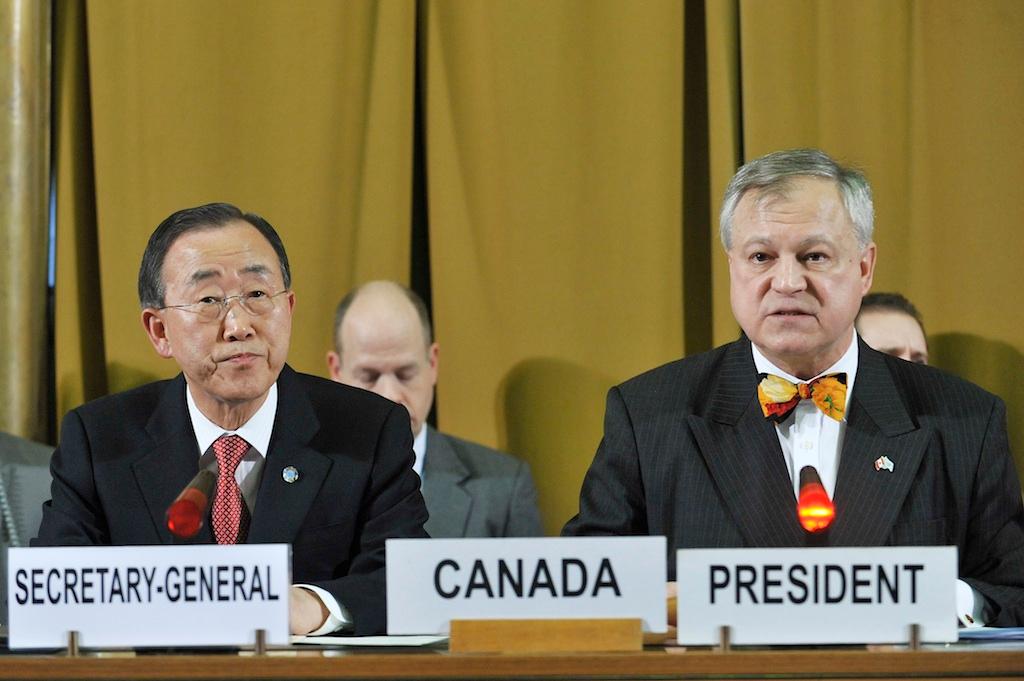Canada, US boycott UN nuclear disarmament talks headed by Iran
United Nations (UN) Secretary-General Ban Ki-moon (L) sits next to the Permanent Representative of Canada and Conference on Disarmament’s president Marius Grinuis (R) as he addresses during the Conference on Disarmament in Geneva on January 26, 2011.
MONTREAL — Canada and the United States are boycotting the United Nations Conference on Disarmament, which will be taken over by Iran later this month.
The conference, which runs from May 27 until June 23, is the world's most important forum for nuclear disarmament negotiations. Though the presidency is largely ceremonial, it is considered a high-profile appointment.
The selection of Iran as head is "unfortunate and highly inappropriate," the spokeswoman for the US mission to the United Nations Erin Pelton said. She argued that countries that are being sanctioned for nuclear proliferation should be banned from holding such positions.
The governments of the United States and Canada have both said they will boycott the sessions as long as they were held by Tehran.
"In Iraq, Syria, Lebanon and elsewhere, the regime is working directly against global disarmament goals and subverting the fundamental principles of this committee," said a spokesperson for Canada's Foreign Affairs Minister John Baird. "Iran's leaders blatantly ignore their international obligations, all while undermining regional security."
Iran is currently under sanctions by the UN, US, European Union and other international bodies for failing to halt its nuclear development program, though Tehran has repeatedly said its aims are peaceful.
Alireza Miryousefi, a spokesperson for the Iranian mission to the UN, defended Iran's right to lead the conference.
"The Islamic Republic of Iran is a founding member of the United Nations," Miryousefi said.
"Its election to the presidency of the Conference on Disarmament, as the most important disarmament negotiating body of the UN, is its right in accordance with the established practice and rules of procedure of this organ."
He added that Iran was focused on "the total elimination of nuclear arsenals of the nuclear-weapon states in an irreversible, transparent and internationally verifiable manner."
Canada also boycotted the UN conference in 2011, when North Korea was its chair.
More from GlobalPost: Commentary: With Iran posed to be a regional player, US should find ways to repair relations
The story you just read is accessible and free to all because thousands of listeners and readers contribute to our nonprofit newsroom. We go deep to bring you the human-centered international reporting that you know you can trust. To do this work and to do it well, we rely on the support of our listeners. If you appreciated our coverage this year, if there was a story that made you pause or a song that moved you, would you consider making a gift to sustain our work through 2024 and beyond?
